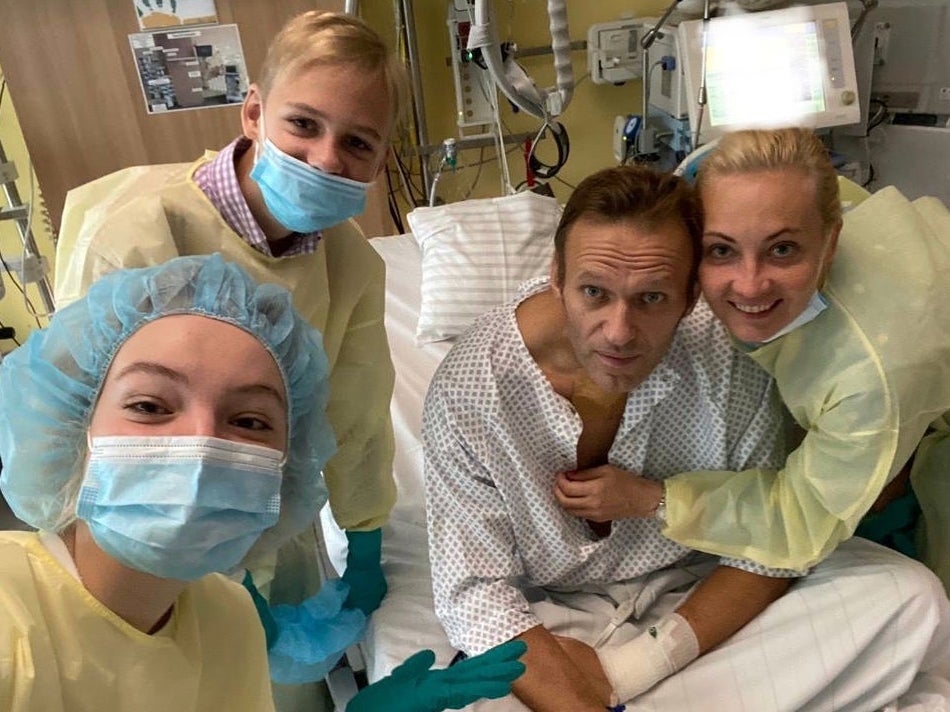Following the Alexei Navalny investigation, the Kremlin has gone strangely quiet
Despite the gravity of the claims, which would appear to suggest an assassination campaign and presidential sign-off, there has been no official word from Vladimir Putin or his team, writes Oliver Carroll


Ordinarily assertive in managing the news agenda, the Kremlin this week fell into something resembling a paralysis.
Over 24 hours have passed since Bellingcat, The Insider and CNN released their investigation detailing how a chemical weapons hit squad from Russia’s security service followed critic Alexei Navalny around Russia for at least three years before he was poisoned in August.
Despite the gravity of the claims – which would appear to suggest an assassination campaign and presidential sign-off – there has been no official word from Vladimir Putin or his team.
On the contrary, Kremlin spokesperson Dmitry Peskov announced on Tuesday that he would be cancelling daily press briefings planned for Tuesday and Wednesday. His staff claimed the press secretary needed the time to get ready for the president’s set-piece annual press conference on Thursday. But the explanations were not convincing: this is the first year the press service has decided it needed two full days to prepare.
So far, state media has failed to offer a counter narrative to the accusations contained in the damaging investigation. TV channels appear to be operating without clear orders, or “temniki” as they are known in the trade.
The Tuesday edition of 60 Minutes, a flagship discussion show that prides itself on “news while the trail is still hot”, passed altogether on the Navalny story. It opted for stories on how “old” Joe Biden had finally won the White House, how the west was engaged in a “war” against the Russian Sputnik V vaccine, and how racism still prevailed in the US. Loyal newspapers likewise steered clear of the subject.
Vladimir Soloviev, the swashbuckling lead danseur of Russian propaganda, offered just a few thoughts as he briefly broached the subject on his new YouTube show. The Bellingcat investigation was the work of British secret services, he told viewers; Navalny was a British agent; and it was their word against Putin’s. Other Kremlin loyalists repeated the same thrifty talking points.
The pattern of state propaganda holding silence until an agreed position is decided in the Kremlin is not new. It’s largely the norm when it comes to controversial breaking news stories. But in an era of Twitter, 24/7 news, and the armchair sleuthing that allowed Bellingcat et al to uncover the Navalny operation in the first place, it is beginning to look absurdly out of place.
None of this is to say the Russian state isn’t already reacting to the revelations contained in the investigation. On Tuesday morning, the prime minister, Mikhail Mishustin, announced he would be asking Rostelekom, the state phone company to start protecting the personal data of its customers.
It was thanks to such data being available on the black market that investigators were able to piece together a picture of the secret operation in the first place.
Yours,
Oliver Carroll
Moscow correspondent



Join our commenting forum
Join thought-provoking conversations, follow other Independent readers and see their replies
Comments